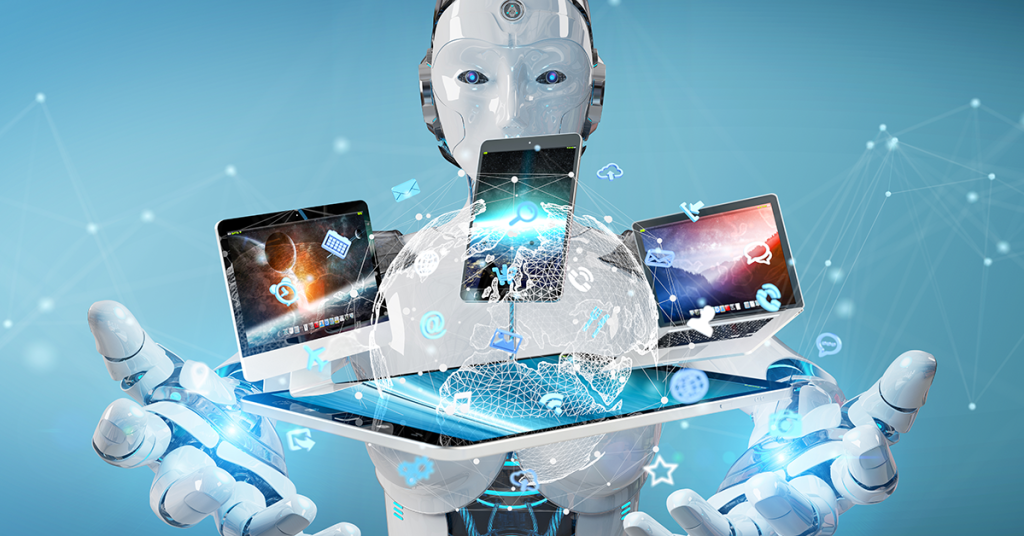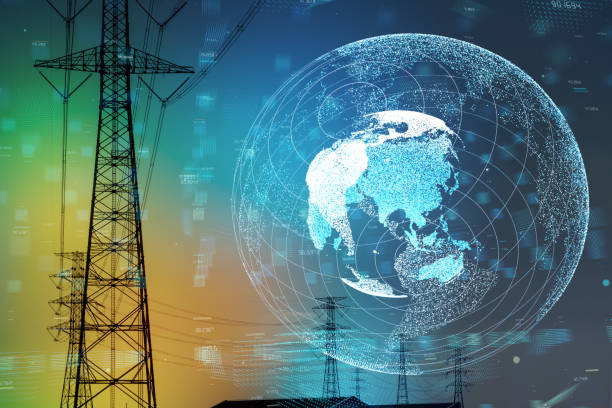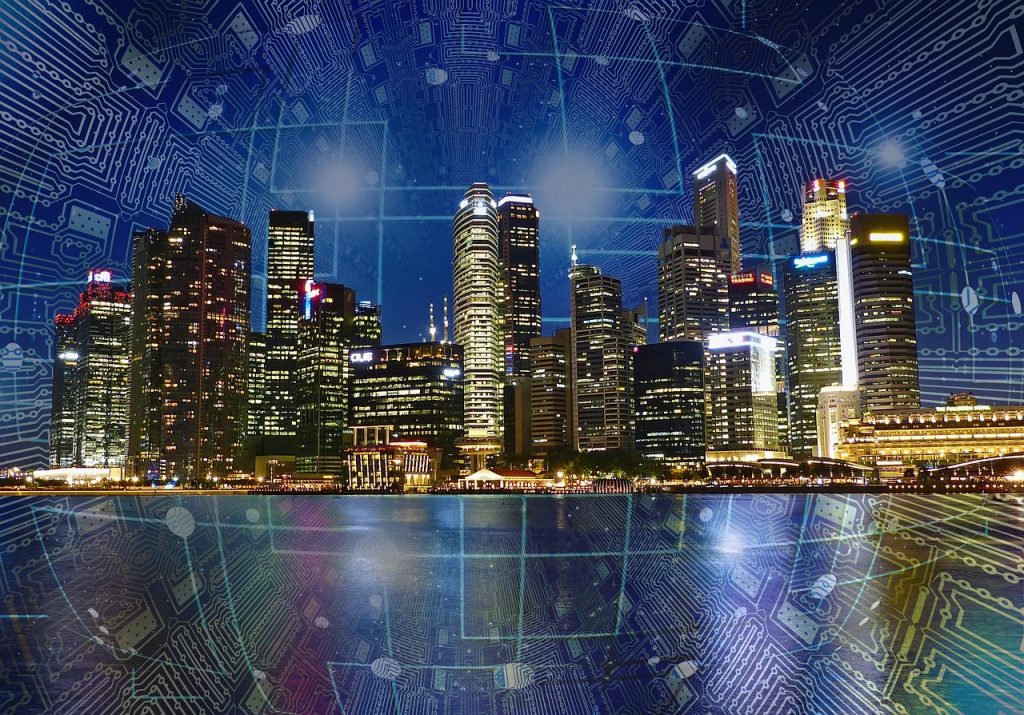Table of Contents
The Internet of Things (IoT) refers to the network of interconnected devices that collect and exchange data through the internet. This technology is transforming industries across the globe by enhancing operational efficiency, improving decision-making, and enabling new business models. From manufacturing to healthcare, agriculture to transportation, IoT is revolutionizing the way businesses operate and interact with their environments. This article explores how IoT is reshaping various industries and the profound impact it has on their operations and growth.

1. Manufacturing
In the manufacturing sector, IoT is driving the transformation towards smart factories and Industry 4.0. By integrating IoT devices and sensors into production lines, manufacturers are achieving unprecedented levels of efficiency, automation, and data-driven decision-making.
- Predictive Maintenance: IoT sensors monitor equipment performance in real-time, predicting potential failures before they occur. This proactive approach to maintenance reduces downtime and minimizes costly repairs. For instance, General Electric uses IoT data to predict maintenance needs for its industrial machinery, saving millions in operational costs.
- Supply Chain Optimization: IoT enhances supply chain management by providing real-time tracking of goods and inventory. Sensors and RFID tags enable manufacturers to monitor the location and condition of products throughout the supply chain, improving inventory accuracy and reducing delays.
- Quality Control: Automated systems equipped with IoT sensors can detect defects and ensure product quality. Real-time data collection allows for immediate adjustments to production processes, ensuring consistent product quality and reducing waste.
2. Healthcare
IoT is revolutionizing healthcare by enabling remote monitoring, personalized treatment, and improved patient outcomes. Connected devices and wearables are enhancing the delivery of healthcare services and providing valuable data for better clinical decisions.
- Remote Patient Monitoring: IoT devices such as wearable fitness trackers and medical sensors enable remote monitoring of patients’ vital signs and health metrics. This capability allows healthcare providers to track patients’ conditions in real-time, reducing the need for frequent in-person visits and enabling early intervention.
- Personalized Treatment: Data collected from IoT devices can be analyzed to develop personalized treatment plans. For example, wearable glucose monitors provide real-time data for diabetic patients, allowing for more precise management of their condition.
- Smart Hospitals: IoT technology enhances hospital operations by improving asset management, tracking medical equipment, and optimizing resource utilization. Smart hospital systems use IoT to streamline workflows, manage patient flow, and ensure the availability of critical resources.
3. Agriculture
In agriculture, IoT is transforming traditional farming practices by introducing precision agriculture and smart farming techniques. IoT devices and sensors are providing farmers with valuable insights to optimize crop yields and manage resources more efficiently.
- Precision Farming: IoT sensors monitor soil conditions, weather patterns, and crop health, allowing farmers to make data-driven decisions. For example, soil moisture sensors help determine the optimal amount of irrigation needed, reducing water waste and improving crop yields.
- Livestock Management: IoT devices track the health and location of livestock, enabling farmers to monitor their animals in real-time. Wearable sensors can detect signs of illness or distress, allowing for timely intervention and improving animal welfare.
- Automated Machinery: IoT-enabled machinery, such as autonomous tractors and drones, enhances farming efficiency. These machines can perform tasks like planting, harvesting, and monitoring crops with minimal human intervention, reducing labor costs and increasing productivity.
4. Transportation and Logistics
IoT is transforming transportation and logistics by enabling real-time tracking, route optimization, and fleet management. Connected vehicles and logistics systems are improving operational efficiency and enhancing the customer experience.
- Fleet Management: IoT sensors and GPS tracking systems provide real-time data on vehicle location, performance, and fuel consumption. Fleet managers can use this data to optimize routes, reduce fuel costs, and improve vehicle maintenance.
- Smart Transportation Systems: IoT technology enhances public transportation by providing real-time information on bus and train schedules, reducing wait times, and improving service reliability. Smart traffic management systems use IoT data to optimize traffic flow and reduce congestion.
- Supply Chain Visibility: IoT enables real-time tracking of shipments and inventory, providing transparency and reducing the risk of delays or losses. RFID tags and GPS trackers monitor the location and condition of goods, ensuring timely delivery and improving supply chain efficiency.

5. Retail
In the retail industry, IoT is enhancing the shopping experience and improving operational efficiency. Connected devices and data analytics are transforming how retailers manage inventory, personalize customer experiences, and streamline operations.
- Smart Inventory Management: IoT sensors and RFID technology enable real-time tracking of inventory levels and product movement. Retailers can automate inventory management, reduce stockouts, and optimize shelf space based on real-time data.
- Personalized Shopping Experience: IoT devices such as beacons provide personalized offers and recommendations to shoppers based on their location and purchase history. This enhances the customer experience and drives sales.
- Operational Efficiency: IoT technology helps retailers optimize store operations by monitoring energy consumption, managing lighting and heating systems, and ensuring equipment functionality. This reduces operational costs and improves store performance.
6. Energy and Utilities
IoT is transforming the energy and utilities sector by enabling smarter grid management, optimizing resource use, and improving service delivery. Connected devices and sensors are enhancing the efficiency and reliability of energy systems.
- Smart Grids: IoT technology enables the development of smart grids that monitor and manage energy distribution in real-time. Smart meters and sensors provide data on energy consumption, enabling utilities to optimize grid performance and reduce outages.
- Predictive Maintenance: IoT devices monitor the condition of energy infrastructure, such as power plants and pipelines. Predictive maintenance tools analyze data to identify potential issues before they lead to equipment failures, improving reliability and reducing maintenance costs.
- Energy Efficiency: IoT systems optimize energy usage by monitoring and controlling heating, cooling, and lighting systems in buildings. Smart energy management solutions reduce energy consumption and lower utility costs for businesses and consumers.
7. Financial Services
In the financial services industry, IoT is enhancing security, improving customer experiences, and optimizing operations. Connected devices and data analytics are driving innovation and efficiency in banking and financial services.
- Fraud Detection: IoT devices and sensors collect data on transaction patterns and customer behavior, enabling real-time fraud detection and prevention. Financial institutions use this data to identify suspicious activities and enhance security measures.
- Enhanced Customer Experience: IoT technology provides personalized financial services through connected devices, such as smart payment systems and digital wallets. These solutions offer convenience and streamline transactions for customers.
- Operational Efficiency: IoT solutions optimize banking operations by monitoring and managing branch infrastructure, such as ATMs and security systems. This improves operational efficiency and reduces costs.

Conclusion
The Internet of Things is transforming industries across the globe by enhancing efficiency, improving decision-making, and enabling new business models. From smart factories and precision farming to connected healthcare and intelligent transportation systems, IoT is driving innovation and reshaping how businesses operate. By leveraging IoT technology, industries can achieve greater operational efficiency, enhance customer experiences, and unlock new opportunities for growth. As IoT continues to evolve, its impact on various sectors will only grow, further driving digital transformation and creating new possibilities for the future.